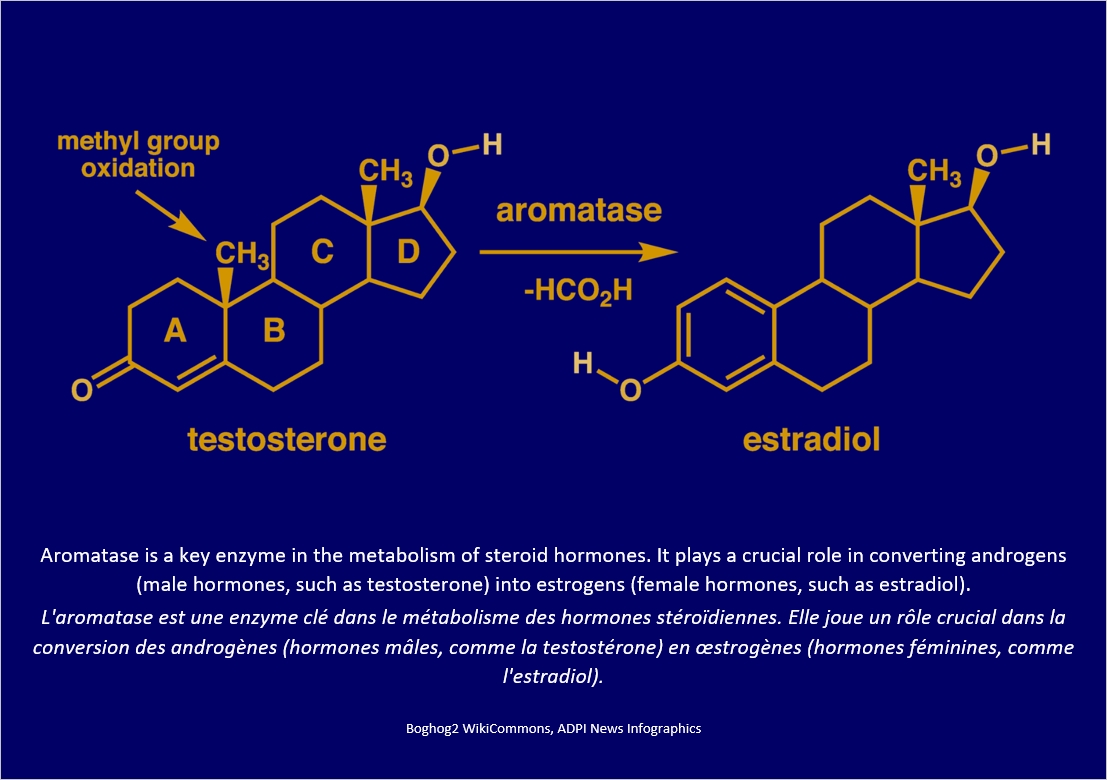Testosterone is a vital hormone in men, also present in women but at levels approximately ten times lower. It plays a critical role in physical, mental, and sexual health. While testosterone levels naturally decline with age, a significant deficiency can lead to various health issues. But what causes testosterone deficiency? What are its symptoms and consequences? And what are the possible solutions, whether medical or natural?
At What Age Does Testosterone Deficiency Begin?
Testosterone levels typically peak between the ages of 20 and 30. Starting around age 30, they gradually decline at a rate of about 1–2% per year. However, this natural decrease does not always result in noticeable symptoms. A true deficiency, or hypogonadism*, can occur at any age but is more common in men over 50.
In younger men, testosterone deficiency may result from specific conditions, such as:
- Hormonal disorders (e.g., hypopituitarism*)
- Chronic illnesses (e.g., diabetes, obesity)
- Trauma or surgery affecting the testicles

Symptoms of Testosterone Deficiency
Testosterone deficiency can cause a wide range of symptoms, depending on the severity of the imbalance. Common signs include:
- Physical symptoms:
- Loss of muscle mass
- Increased abdominal fat
- Chronic fatigue
- Reduced bone density, increasing the risk of osteoporosis
- Erectile dysfunction or reduced libido
- Mental and emotional symptoms:
- Irritability or mood swings
- Difficulty concentrating and memory loss
- Depression or a general lack of energy
- Other symptoms:
- Reduced body hair
- Slower facial and body hair growth
These symptoms can significantly impact quality of life but are often underdiagnosed because they may be mistaken for aging or other conditions.
Consequences of Untreated Testosterone Deficiency
If left untreated, prolonged testosterone deficiency can lead to significant health risks:
- Cardiovascular health: Low testosterone levels are associated with an increased risk of heart disease.
- Bone health: Reduced bone density can result in fractures.
- Cognitive function: Memory difficulties and reduced alertness may develop.
- Fertility: Lower sperm production may lead to reduced fertility.
How to Treat Testosterone Deficiency
Medical Treatments
Important Reminder: Always seek medical advice before beginning any treatment. Misuse or improper administration of testosterone replacement therapy (TRT) can have serious health consequences, including a possible link to prostate cancer.
- Testosterone Replacement Therapy (TRT):
- Involves administering testosterone via gels, injections, patches, or pills.
- Effectively alleviates symptoms and improves quality of life.
- Must be closely monitored due to potential risks, including cardiovascular issues or prostate stimulation.
- Stimulatory Medications:
- Certain drugs, such as clomiphene, can stimulate natural testosterone production without directly supplementing the hormone.
Natural Approaches
Lifestyle changes can naturally boost testosterone production:
- Diet:
- Prioritize foods high in zinc (oysters, nuts, red meat) and vitamin D (fatty fish, eggs, sunlight exposure).
- Avoid ultra-processed foods and refined sugars, which promote inflammation.
- Physical Activity:
- Resistance training (weightlifting) and high-intensity interval training (HIIT*) are particularly effective.
- Stress Management:
- Chronic stress raises cortisol levels, which inhibits testosterone production. Practices like meditation, yoga, and deep breathing are beneficial.
- Quality Sleep:
- Poor or insufficient sleep is a common cause of low testosterone. Aim for 7–9 hours of restful sleep per night.
- Weight Loss:
- Weight loss, particularly for obese individuals, can significantly improve testosterone levels.
Adaptogenic Plants: Natural Stress Relief
Adaptogenic plants help the body adapt to physical, mental, or emotional stress by restoring balance. Examples include:
- Ashwagandha (Withania somnifera): Reduces stress and boosts energy.
- Rhodiola (Rhodiola rosea): Improves mental and physical endurance.
- Ginseng (Panax ginseng): Enhances immunity and combats fatigue.
- Holy Basil (Ocimum sanctum): Calms the nervous system.
Notes
- Hypogonadism: A condition characterized by reduced functional activity of the gonads (testicles in men or ovaries in women), resulting in insufficient production of sex hormones like testosterone or estrogen. In younger individuals, it may indicate an underlying pathology.
- Hypopituitarism: A condition where the pituitary gland produces insufficient amounts of one or more hormones. This can affect growth, metabolism, reproduction, and water balance.
- HIIT (High-Intensity Interval Training): A workout style that alternates short periods of intense physical effort with recovery or low-intensity activity, such as 30 seconds of sprinting followed by one minute of walking.
Disclaimer: The information provided on this site is for informational and educational purposes only. It does not constitute medical advice, diagnosis, or treatment. Always seek the guidance of a qualified healthcare professional before making any decisions regarding your health. Never disregard professional medical advice or delay seeking care due to information found here. We assume no responsibility for any decisions or actions taken based on this content, nor for any consequences arising from its use. Your use of this content is entirely at your own risk. By accessing this content, you acknowledge and accept full responsibility for your health-related choices and actions.
